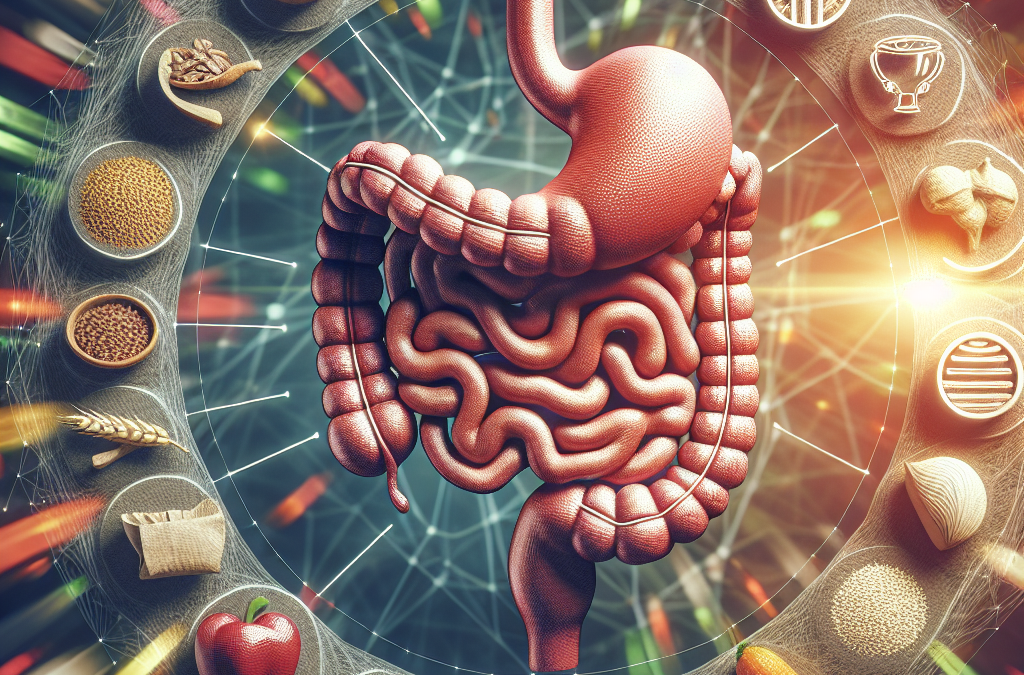Understanding Fiber: The Basics
What is Fiber?
Alright folks, let’s break it down. Fiber is a type of carbohydrate that your body can’t digest. Sounds strange, right? At first glance, you might think carbs are all about energy. But fiber? It plays a different game. There are two main types to consider: soluble and insoluble fiber, each with its own unique benefits. Soluble fiber dissolves in water and helps to manage blood sugar levels, while insoluble fiber adds bulk to your stool, keeping your digestion running smoothly. Super important stuff!
From my own kitchen experience, I’ve learned that incorporating both types can help regulate your gut health. Think oatmeal for the soluble and whole grains or veggies for the insoluble. It’s like giving your digestive system a little workout.
Remember, embracing fiber doesn’t just help your insides; it leads to a happier, healthier you overall. So why not munch those fiber-rich foods daily? It’s an easy win if you ask me!
The Connection Between Fiber and Digestion
How Fiber Affects Your Digestive Process
You might be wondering, “Hey, why should I care about fiber?” Well, let me tell ya, fiber plays a crucial role in your digestive health. It not only promotes regular bowel movements but also aids in preventing constipation. When you consume an adequate amount of fiber, it helps to sweep your digestive tract clean like a broom!
In my personal journey towards better gut health, I found that upping my fiber intake helped reduce bloating and discomfort I previously thought was just part of life. And you know what? It paved the way for a more consistent bathroom routine. You want to feel good, right? Fiber can help with that!
Moreover, fiber slows down digestion, which means your body gets to absorb nutrients more efficiently. With the right balance, you’re fueling your body in a way that enhances overall health. So, let’s get those fibers rockin’!
Fiber and Gut Microbiome Balance
The Importance of Gut Bacteria
Now, here’s where it gets really interesting. Our gut is home to trillions of bacteria, many of which prefer fiber as their primary food. Yes, I’m talking about probiotics – the good guys! Eating high-fiber foods encourages the growth of these beneficial bacteria, leading to a more balanced microbiome. That’s a win-win!
In my experience, after adding a variety of fiber-rich foods to my diet, I noticed my digestion was not just more efficient but I also felt less fatigued. A healthy gut means a healthier body, and who can argue with that?
When those gut bacteria are thriving, it’s easier for your immune system to function properly too. So trust me, investing in your gut health with fiber can cascade into benefits that touch all areas of life. And who wouldn’t want that?
Fiber’s Role in Preventing Disease
A Guard Against Health Issues
Let me lay it out here. Research strongly suggests that a fiber-rich diet can lower the risk of certain diseases, including heart disease, diabetes, and even colorectal cancer. It sounds serious, right? But it’s true! When you consume enough fiber, it helps to regulate cholesterol levels and manage blood sugar levels. Talk about prevention!
Get an Amazing Discount on the Best Certified Organic Whole Food Supplement!
My own health journey included carving out time to make homemade meals with lots of beans, vegetables, and fruits. Oh boy, did I notice a change! Not only did my mood improve, but I also felt I was actively doing something positive for my long-term health.
So don’t underestimate the power of a little fiber! It’s not just a fad—it’s your body’s friend ready to fight off some nasty diseases down the line!
Ways to Incorporate More Fiber Into Your Diet
Simple Tweaks to Your Eating Habits
Okay, now we’re getting to the fun part—adding more fiber to your daily routine. If you’re like I was at one point, you might feel overwhelmed. Fear not! It can be super simple. You don’t need a drastic diet overhaul; small tweaks can make a big difference. Start by adding a handful of nuts or seeds to your breakfast cereal.
Another awesome trick I’ve picked up is swapping white bread for whole-grain versions. You’ll hardly notice the difference, but your gut will definitely thank you!
Lastly, make friends with beans. They are fiber powerhouses! Toss them into salads, soups, or even pasta. Getting the right fiber in your diet has never been easier! Let’s heal our guts together, one meal at a time!
FAQs on The Role of Fiber in Gut Health
1. How much fiber do I need daily?
Generally, aiming for about 25 grams for women and 38 grams for men is a good benchmark. However, everyone’s needs can vary a bit!
2. What are some good sources of fiber?
Fruits, vegetables, whole grains, legumes like beans and lentils, and nuts are fantastic sources. You can never go wrong with a colorful plate!
3. Can I get too much fiber?
Yes, exceeding the daily recommendation can lead to digestive issues like bloating or gas. It’s all about finding that sweet spot!
4. How can I add fiber to my meals easily?
Easy peasy! Start with breakfast—think oats or chia seeds. Snack on fruits or nuts. And remember to include veggies in your lunch and dinners.
5. Does cooking food affect its fiber content?
Cooking can change the texture but usually doesn’t alter the fiber content dramatically. Just avoid overcooking; that can lead to nutrient loss!




